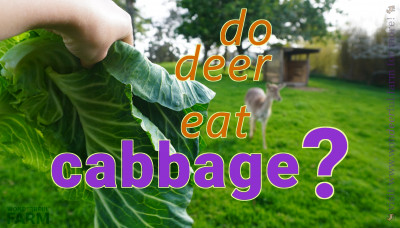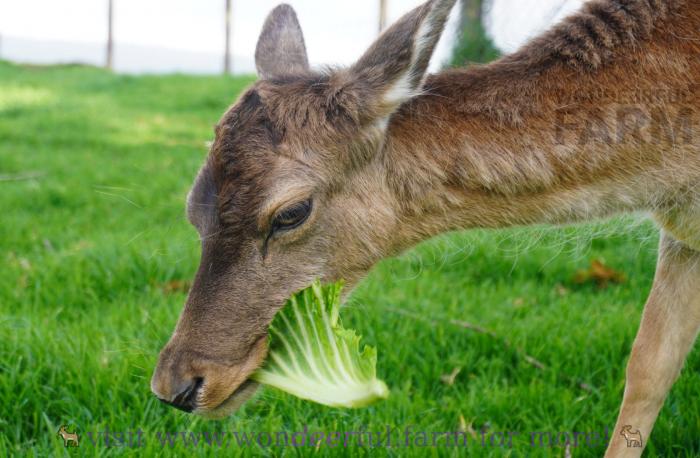Do Deer Eat Cabbage?
» Deer stories » Do deer eat » Do Deer Eat Cabbage?Plant type: annuals
Deer resistant: somewhat
Our plant hardiness zone:
New Zealand: subtropical
U.S. Zone 10b
When a deer strolls into your veggie patch, it's like inviting anxiety for a garden party. An adult deer can throw down a whopping 6 to 10 pounds of grub in a single day!
And if that's not enough to make you twitch, spring and summer bring out the real foodie in these furry foragers. This is because of those expecting and nursing does, and the bucks growing their impressive antlers. Unfortunately, that's also when most gardeners are busy growing their greens, including those lovely cabbages.

This article addresses the questions of both gardeners and those keen on feeding their local deer.
Do Deer Enjoy Cabbage?
On our farm, we've offered our deer some cabbage, and the verdict is that they will eat it, but they are not particularly attracted to it when compared to some other crops like carrots or cucumbers. Younger and fresher cabbage leaves are their preferred option, while older vegetables may even be ignored as long as there's better options available.
Deer can also eat cabbage cores. If you have fresh or boiled/steemed ones you don't want, some deer might like them.
Is Cabbage Good for Deer
If you're determined to feed your local deer, you might be wondering if cabbage is a suitable treat. Cabbage is a source of vitamins and fiber, and it can be a nutritious addition to deers' diet. But it should only be offered in moderation. Offering a wide range of plants and vegetables will help ensure the deer's overall health. Deer do not benefit from sudden drastic changes to their ration.
How to Tell If a Deer Is Eating Your Cabbage?
Identifying deer damage to your cabbage plants is crucial if you want to protect your garden. Here are some signs to look out for:
- Hoof prints: Deer prints resemble upside-down hearts. In soft earth, you may not see the actual print; instead, you'll note deep, almost cylindrical holes poked into the soil.
- Droppings: Look for small piles of round, pebble-like droppings, which are a clear indicator of deer activity.
- Trampled plantings: As deer walk through the garden, they leave a trail of damaged plants as they're heavy animals.
- Torn leaves: Deer lack upper front teeth (incisors), so when they bite a plant, they jerk their heads and pull, creating a ragged, torn edge on leaves and stems. This is a distinct characteristic differentiating deer damage from that of rabbits and gophers.
How Can I Protect My Cabbage?
If you want to keep your cabbage safe from deer, there are several methods you can employ to deter them from your garden:
Growing Cabbage in Containers in Hard to Access Places
One effective strategy is to grow cabbage in containers placed in areas that are difficult for deer to access. Elevated planters, or raised beds can help keep your cabbage out of their reach.
Fencing and Barriers
Installing deer-resistant fencing or barriers around your garden is a tried-and-true method. Choose a fence that is at least 8 feet tall, as deer are skilled jumpers. Additionally, you can use netting or chicken wire to protect your cabbage, but know that determined deer can pull soft netting out..
Repellents and Scare Tactics
There are various deer repellents available, including sprays and granules that emit unpleasant odors for deer. Scare tactics such as motion-activated sprinklers or noise-making devices can startle deer and discourage them from entering your garden.
We've reviewed the abovementioned remedies and more in our dedicated post on protecting your garden from deer.
Published 06 November 2023
Add your comment
Plants alphabetically
 '
'
